Different ways Manuka honey can benefit the skin
Manuka honey contains many bioactive compounds. Bioactive means to be biologically active and having an influence on living organism and their tissue and cells. This means bioactive Manuka honey affects our skin when it makes contact. Manuka honey’s bioactive compounds have a beneficial and positive influence on skin health and assists by treating and soothing conditions such as wounds, rashes and other irritations. These same bioactive compounds are also good for using on the skin of animals such as your pets, farm animals and for injured wildlife.
The bioactive compounds found in Manuka honey include:
- Hydrogen peroxide (antibacterial properties)
- Methylglyoxal (MGO) (long lasting antibacterial properties)
- Flavonoids and Polyphenols (antioxidant, anti-inflammatory and antimicrobial properties)
- Enzymes (cleansing and pH balancing)
- Vitamins and Minerals (Vit B & C, potassium, calcium, magnesium and phosphorus)
- Animo acids (promoting tissue repair and cell regeneration)
- Fructo-oligosaccharides (prebiotic)
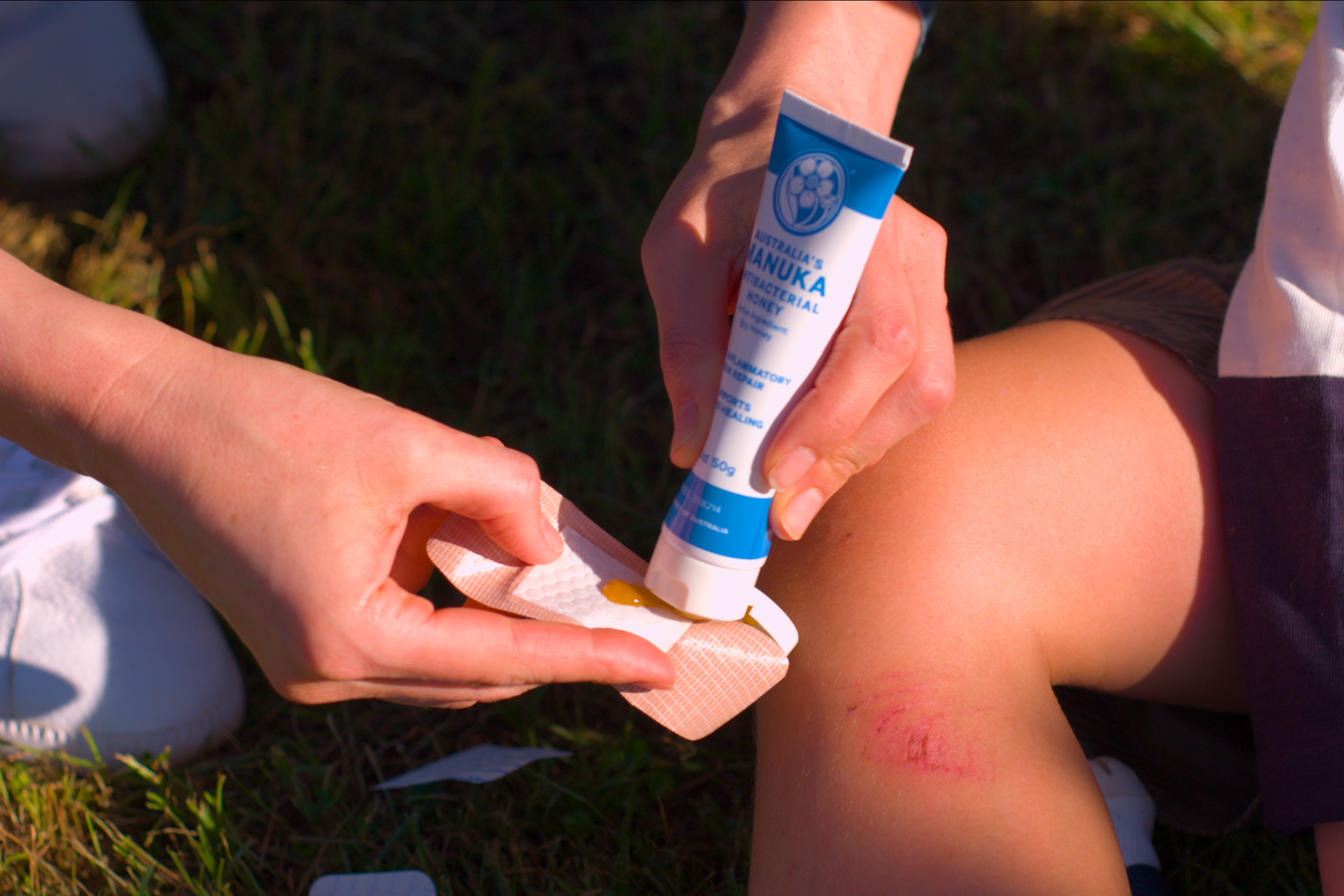
The top 7 Benefits of Manuka honey for the skin
1. Manuka honey keeps skin hydrated
Honey is a dense liquid and has humectant properties. This means honey can attract and retain moisture when used on the skin and can assist in keeping skin nourished and moisturised. Humectants work to hydrate the skin without it feeling heavy or oily. This quality works to nourish the skin while the benefits mentioned below work alongside.
2. Keeping the skin feeling silky smooth
The slightly acidic pH, the Hydrogen Peroxide and Methylglyoxal (MGO) of Manuka honey can lightly exfoliate the skin, removing dead skin cells and create a smoother surface. Manuka honey can be applied directly onto a pre-moistened skin as a cleansing facial for ten minutes and then removed with warm water.
3. Helps reduce ageing effects on the skin
Manuka honey has antioxidants properties which come from the rich phenolic compounds, vitamin C, catalase and glutathione. These antioxidants help protect the skin from free radicals which are unstable molecules that can damage your skin cells which in turn can lead to premature aging, wrinkles and other skin issues. Antioxidants neutralize free radicals preventing and minimising their harmful effects up on the skin tissue.
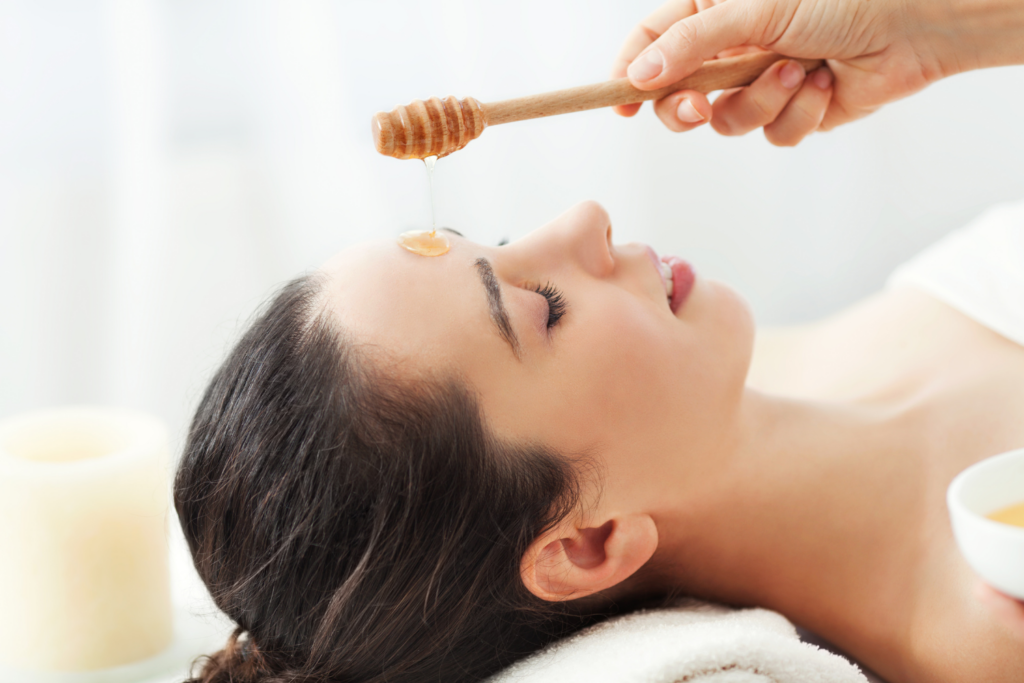
4. Many antibacterial properties
Like most honey Manuka honey contains naturally occurring hydrogen peroxide which acts as a natural antiseptic and antimicrobial. However, Manuka honey also contains MGO which has longer lasting and more stable antibacterial and antimicrobial properties which means that it continues to provide antibacterial benefits for a much longer period than raw culinary honey.
5. A natural skin anti-inflammatory
The MGO, flavonoids and phenolic compounds in Manuka honey also have an anti-inflammatory affect. These inhibit the production of pro-inflammatory cytokines and enzymes which can be:
- soothing for acne
- eczema
- dermatitis
- wounds
- diabetic ulcers
- and other skin irritations.
6. Fades scars and promotes wound healing
The combined benefits mentioned above create an optimum environment for healthy skin cells to grow and replenish after disruptions such as wounds, infections or irritation. The skin is moisturised, nourished, and cleansed during the healing process which enables a reduction in scarring and faster healing.
7. Supports the treatment of acne
The antibacterial and anti-inflammatory benefits of Manuka honey make it effective for treating acne. Manuka honey can be applied directly to the skin as a spot treatment for acne or as a facial or total area cover.
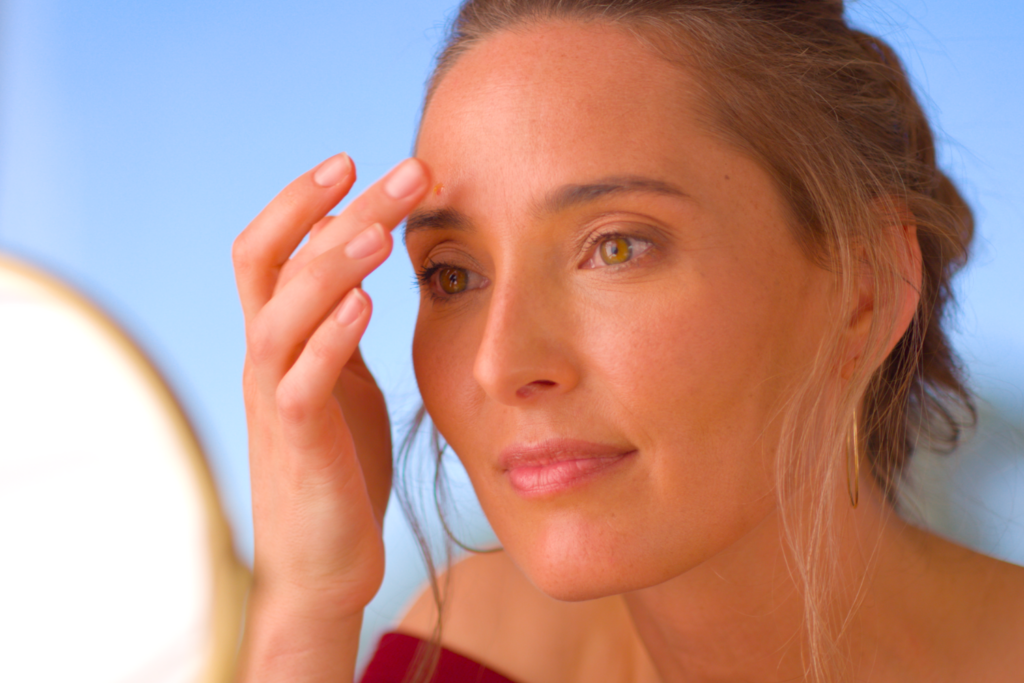
Are there any risks to using Manuka honey on the skin?
There are some risks or difficulties in using Manuka honey on the skin, these include:
- Allergic reactions: some people are allergic to components found in honey such as pollen, bee proteins and other compounds. Spot testing on your skin to check for an allergic reaction is recommended.
- High sugar content: of honey can feed some types of bacteria and fungi, which could worsen the existing skin irritation.
- Authenticity Concerns: there is risk of purchasing counterfeit or adultered honey. Purchasing Manuka honey from a reputable brand that has the Australian Manuka Honey Associations (AMHA) certificate of Authenticity which will assist to alleviate these concerns.
- Choosing the right strength MGO: different strength MGO is recommended for different ailments. If you do not have strong enough MGO it may not work as well as a stronger MGO honey.
- Sticky and messy: honey is sticky, however it can be easily washed off with warm water. For larger area application you can also mix it with coconut oil to reduce stickiness and aid in dispersing the honey over the skin.
- Some people may experience a transient or short-lasting stinging sensation when Manuka honey is applied on open minor cuts and wounds. This should quickly pass but if it persists you can wash off with water.
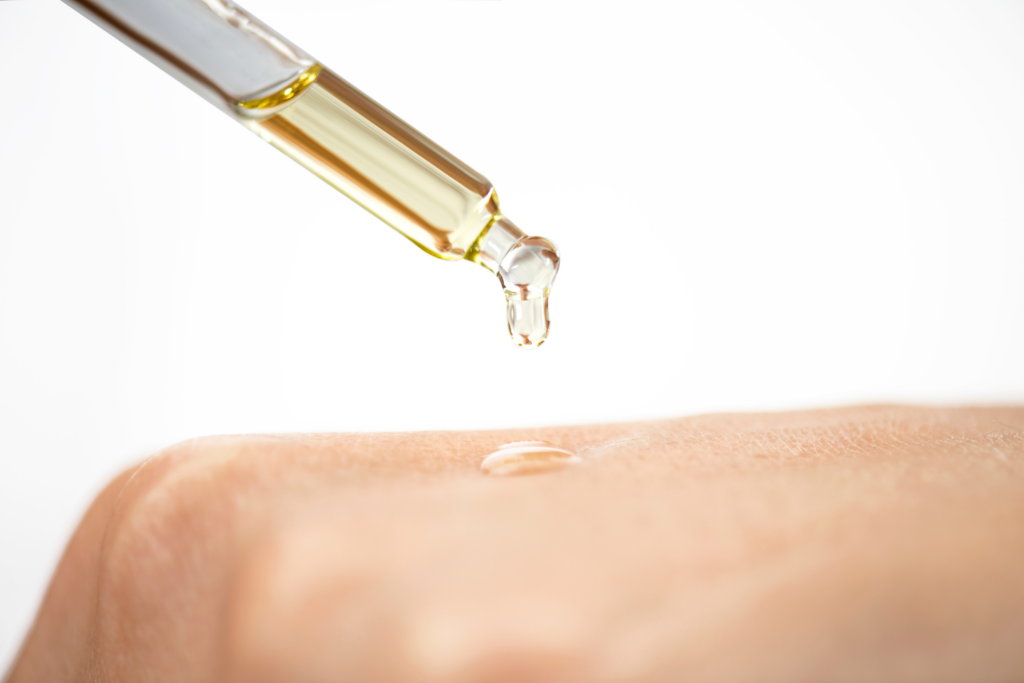
What are the best Manuka honey products for the skin
There are varying strengths of MGO Manuka honey available on the market. For medicinal or skin conditions MGO 250+ is recommended as a minimum. The honeys mentioned below maybe mixed with coconut oil to make a soothing cream to spread on the skin, placed on wounds and dressings or used at spot treatments on the skin.
MGO 250+ is useful for minor cuts, burns or skin irritations.
MGO 550+ is a stronger honey and will treat the affected areas faster. For acne or more major skin conditions this honey would be suitable.
MGO 850+ this honey has more potent cleansing and antibacterial properties. This honey superior at treating wounds that are slow to heal or more serious skin conditions.
MGO 1200+ is a very strong MGO honey and can be used to treat skin conditions and irritations. This honey will give a potent treatment of antibacterial MGO to the skin.
Try Australia’s Manuka Honey with us today
We are a family-owned beekeeping business and have been in operation for over 25 years. We pride ourselves on bringing quality high-grade Australian Manuka honey to the world. We offer Manuka honey in a range of MGO strengths to suit everyone. All our Manuka honey is tested at certified, independent laboratories to ensure accurate MGO ratings. We are also a founding member of the Australian Manuka Honey Association (AMHA).
Shop Manuka Honey here.
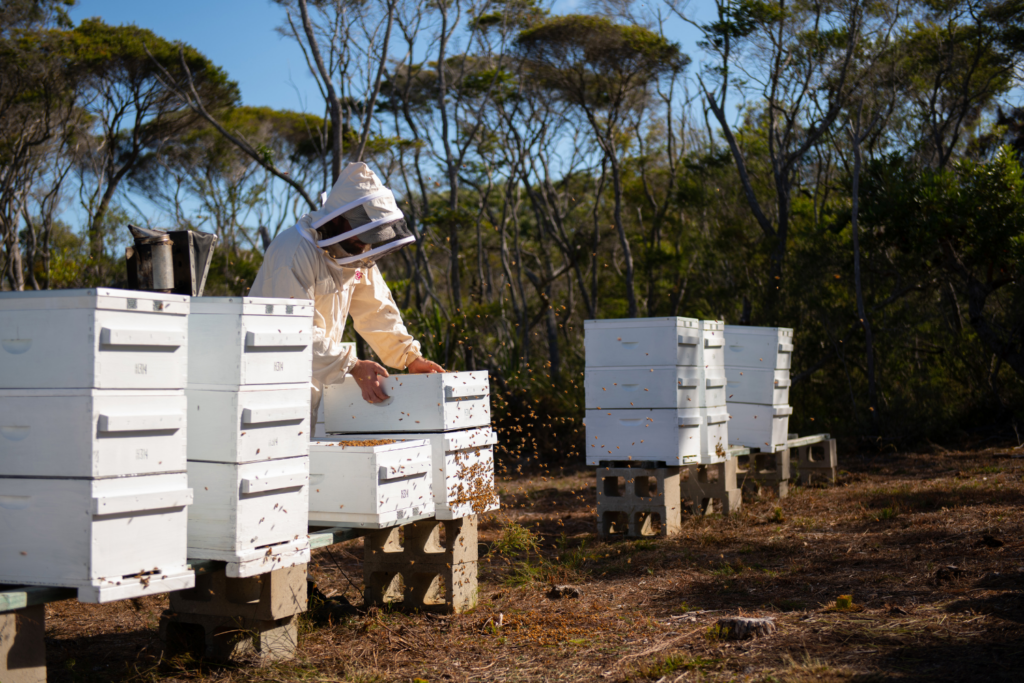


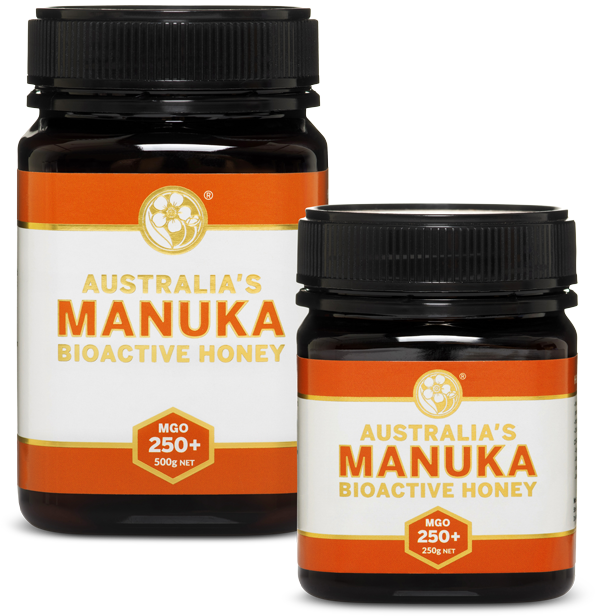
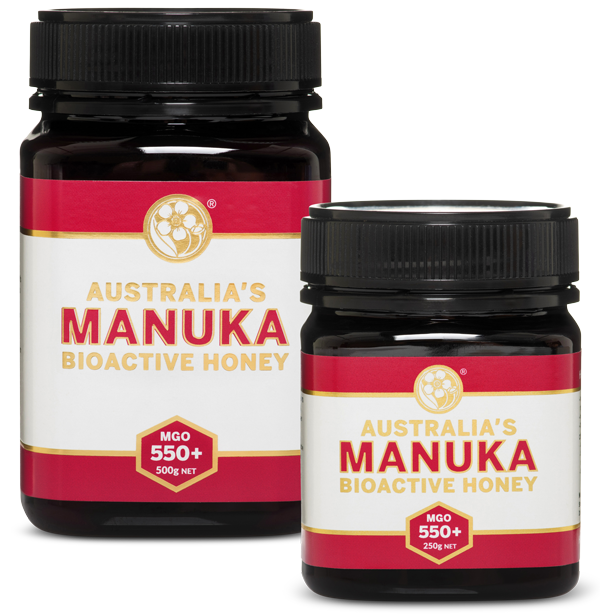
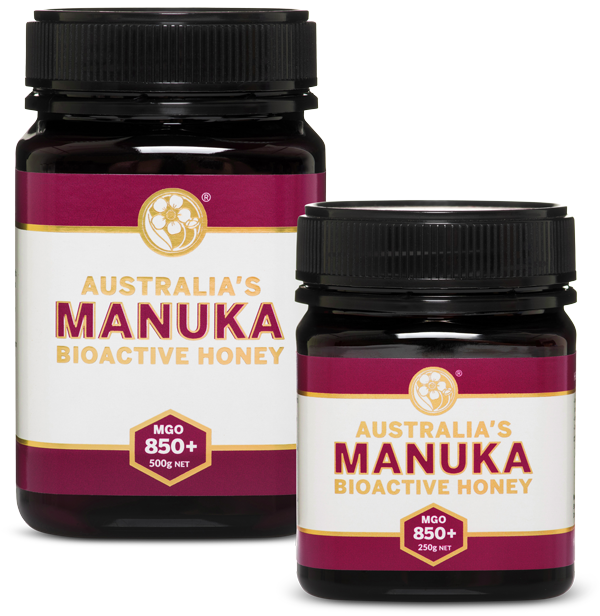
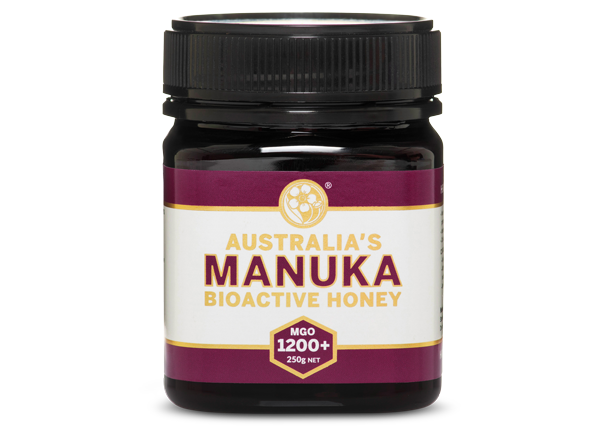





hi there, just got the 850 mgo honey, just wondering how many times a week is recommended for a face mask ?
cheers
Hi Joe thank you for your purchase and supporting our family business. For face masks you could do it daily if you wanted or need to. It is great for acne and skin conditions. It is good to clean and moisten the face a little before use and apply to skin, leave for 10-15 minutes and wash off with warm water. You can also use it a spot treatment for skin conditions or mix with your preferred oil (we love cold pressed organic coconut oil) and then it becomes a balm for a larger area. You could do a honey facial weekly as part of your routine, you can mix it with coffee grounds to make an exfoliating mask, once a week is probably enough for this one. Thank You Australia’s Manuka Team
Hi!
We love m.honey!
U mentioned 850mgm
for more serious
Conditions of the skin!
Could that include low grade cancers?
( I can react against
chemical treatments!)
Thanks in
anticipation!!
Marj Drewitt,
Australia.
marjedrew@gmail.com
Hi Marj so glad you love Manuka honey, we do too! I hope you have tried our Manuka honey. It is truely one of natures gift to us!
With skin cancer we believe there is some research being done in this area with no definitive scientific research yet. The honey can certainly work after skin cancer removal to assist with healing. We have a Skin Repair tube on our website that would be perfect for this use. Thanks Australia’s Manuka Team
I just interested to see if manuka honey would help my skin. I have been on aspirin for a TIA i had in 2004 and know I bump my skin on my leg and skin just lifts, at this stage I can be so careful and then 6 months down the track I’m back at doctors getting dressing 3 days a week. Im hoping this will heip me in some way. Could you please tell me which one to use and can I buy at Chemist Warehouse.
Thank you
Hi Roslyn sorry to hear about your skin and wound concerns. Manuka honey is a great resource for wound healing we would recommend at least 250+ MGO but a higher MGO like 550+ or 850+ would be even more effective. You should apply the honey directly to the wound and place a dressing over it. Our blog ‘Manuka honey for wounds’ might be worth a read for you https://www.australiasmanuka.com.au/manuka-honey-for-wounds/. Unfortunately we are not at Chemist Warehouse. We are in some health food stores, at our local farm store and at the Byron Farmers Markets or you can purchase from our online store. If you sign up to our mailing address you get a 10% discount and we send our other discounts to our subscribers as well. Wishing you good healing for your skin and health. Thanks Australia’s Manuka
Good day.
I an 64 years old
I would like to know how manuka honey can help with deep wrinkles or lines on my face. Also please send me all the benefits of manuka honey for anti aging and how it works on the skin.
Also what strength do i buy for skin care?
Hi Elpida
Manuka honey has antioxidants and amino acids which benefit the skin. Antioxidants work against free radicals which age the skin through cell damage and amino acids which promote the growth of healthy skin cells. Manuka honey is also humectant which means is nourishes the skin as it draws and holds moisture in the skin. Manuka honey also contains vitamins and minerals that support the skin. These all contribute to supporting healthy skin. If you are using Manuka honey daily as a facial and eating for skin health, then you could opt for 250+MGO or 400+MGO if you are using it weekly they 550+MGO or 850+MGO would be suitable. Wishing you healthy skin, Australia’s Manuka Team